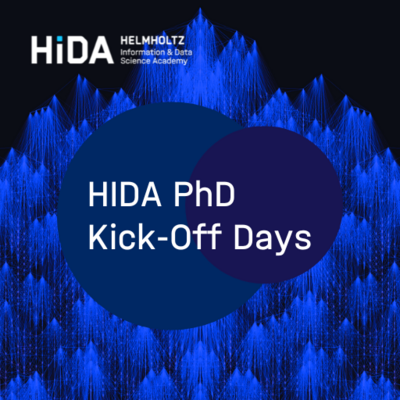Helmholtz GPU Hackathon 2023
Forschungszentrum Jülich (FZJ), Helmholtz Zentrum Dresden-Rossendorf (HZDR), and the Helmholtz Information & Data Science Academy (HIDA) together with NVIDIA and OpenACC will co-organize the Helmholtz GPU Hackathon 2023. The event will be hosted by FZJ in Jülich (close to Cologne) May 9 through 11, 2023 with a virtual kick-off on May 2, 2023. GPU Hackathons provide exciting opportunities for scientists to accelerate their AI or HPC research under the guidance of expert mentors from national laboratories, universities and industry leaders in a collaborative environment.
Representing distinguished scholars and preeminent institutions around the world, these teams of mentors and attendees work together to realize performance gains and speedups using a variety of programming models, libraries, and tools.
The goal of the GPU Hackathon is for computational scientists to port, accelerate, and optimize their scientific applications to modern computer architectures, including CPUs, GPUs and other computing technologies. Participating teams should leave the event either with their applications accelerated and/or optimized on the latest supercomputing hardware or a clear roadmap of the next steps needed to leverage these resources.
The Helmholtz GPU Hackathon will be hosted primarily onsite at the Jülich Supercomputing Centre (JSC) in the Central European Summer Time (CEST) zone. JSC will be providing working spaces to host teams in person to give the attendees the most immersive Hackathon experience. JSC is also providing access to JUWELS and JURECA, two supercomputers equipped with many NVIDIA A100 GPUs. Each Hackathon team will be assigned to work with mentors on their codes and will present short reports (SCRUMS) on their progress to all participants daily. The Kick-Off on May 2, 2023 will be an online event. Team communication will be done through Zoom (on the kick-off), Slack, and email.
Deadline for the team application is March 14, 2023!
Attending the Hackathon
If your team is accepted for the hackathon, registration information will be provided along with mentor introductions and computational resource access. Accepted teams should:
- Register all team members for the event.
- Review the attendee guide.
For application, more information & questions click here:
Prerequisites
- Teams are expected to be fluent with the code or project they bring to the event and motivated to make progress during the hackathon.
- We will be using the Jülich HPC systems. Teams need to familiarize themselves with the usage of the system (online material on remote login, batch system usage and software environments is available) before the event and need to have their code running (including all required dependencies either through the software environment modules or self-installed); support will be provided before the Hackathon.
- Minimum of 3 team members must participate throughout the entire event. Lack of participation for the duration of the Hackathon will cause the entire team to be excused.
- Projects brought to the event are required to have a license attached and detailed in the application. For more information on why licenses are important and how to obtain one, please use the following links:
Recommended
No advanced GPU skills are required, but it is helpful for teams to know the basics of GPU programming and profiling. We recommend familiarizing yourself with these concepts by accessing any of the no-charge GPU lectures, tutorials, and labs available to all participants. Please contact organizers for more information to help you prepare for the hackathon.
Computer Resource
Teams attending the event will be given access to the JUWELS Booster system, currently the 12th fastest supercomputer in the world, and JURECA DC, currently ranked 61st.






